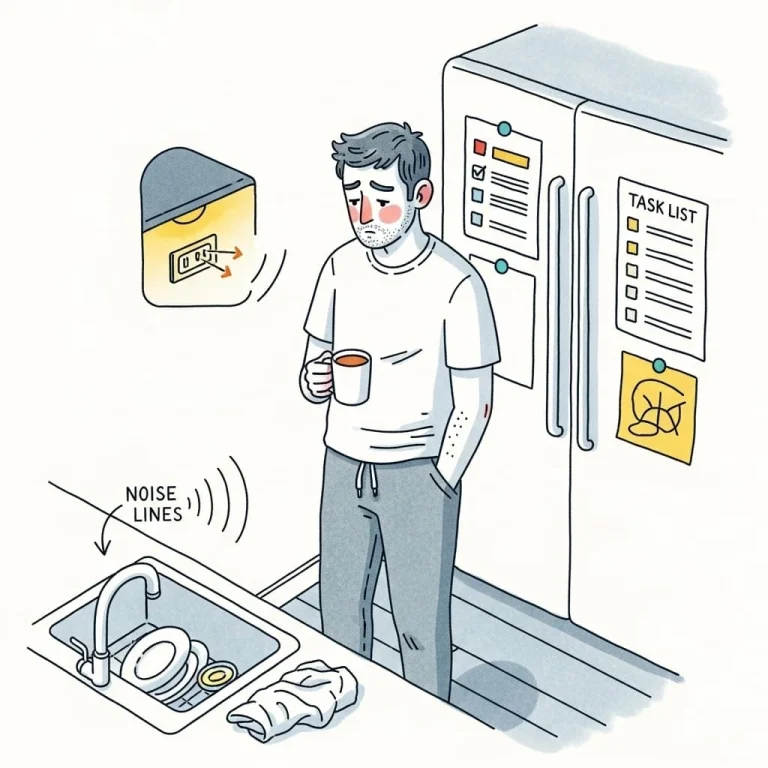The Link Between Physical Disability and Mental Health
Substantial evidence shows that people with disabilities have an increased risk of developing mental-ill health. However, the data also shows that it is not always the physical disability itself that leads to developing poor mental health.
Having a physical disability opens up another discussion on its impact on mental health. It doesn’t only signify an impairment or a limited ability to perform a specific task; that is only a piece of the puzzle. Physical disabilities impact people’s lives, affecting every aspect of daily living.
Often, the relationship between mental health and having a physical disability is not in the disability itself. Instead, it is the social constraints, discrimination and stigma that people with disabilities face. Also, many obstacles that make social functioning possible contribute to people developing certain mental health conditions such as depression or anxiety.
What Is Physical Disability?
Daily tasks can become challenging for people with physical disabilities. A physical disability limits the ability to move and perform day-to-day tasks and can be long-term, while others are short-term.
Examples of a physical disability may include:
- Spinal cord injury
- MS
- Degenerative conditions
- Trauma
- Musculoskeletal conditions
- Loss of limb
- Motor Neurone Disease
- Parkinson’s Disease
- Acquired Brain Injury
The Role of Support Workers in Improving Mental Health for Individuals with Physical Disabilities
Support workers are always on the frontline to support people with mental-ill health. Their support and assistance help people manage challenges and adjust their lives according to their physical disabilities and strengths.
The support workers at Unique Community Services are always prepared to provide assistance and care. Their role can vary from preparing healthy cooked meals, engaging in social and fun activities, increasing physical activity and helping with more complex tasks around the home.
Support workers help people with physical disabilities and many other conditions by finding a way that works best for the people they care for. They help them cope, carry on with day-to-day life, and provide support in a way that helps them achieve all their goals. Most times, support workers wear many hats when working with a person with a physical disability, acting both as a carer and someone that will provide emotional support.

Common Mental Health Issues Experienced by Individuals with Physical Disabilities
Time and time again, researchers show us that people with disabilities are at an increased risk of developing mental-ill health.
In most cases, people with a physical disability don’t often feel distressed about having a particular type of disability. But, other factors contribute to developing mental health conditions, such as social constraints.
However, despite all challenges, life with a disability doesn’t have to mean a life of isolation and loneliness. Advocacy groups are making huge strides in educating and lowering the barriers to inclusion and access to social participation for people with disabilities.
Social Constraints
Society is an environmental factor that significantly influences everyday life, especially for people with physical disabilities. Studies show that physical limitations are not the main factor contributing to poor mental health. In most cases, society and how society treats people with disabilities play a much more significant role.
People with disabilities face discrimination in almost every aspect of daily living. For example, it is a common misconception that hiring a person with a disability would be more expensive to accommodate their needs or sometimes that a person with a physical disability will not be as productive. Also, students, as a group of people, experience discrimination at university and face barriers in using certain facilities such as libraries, lecture rooms or even toilets.
Loneliness and Isolation
We, as humans, are social creatures. We are not designed to live by ourselves. But people with physical disabilities often face isolation and cannot participate in social activities. The inaccessibility and the poor infrastructure force people to live more isolated life.
Also, the many myths and misconceptions about disabilities are significant factors contributing to loneliness and isolation. Subsequently, improving one’s mental health will be challenging when someone is isolated and lonely. For that reason, inclusion plays a vital role in integrating people with physical disabilities into our communities and contributes to making the world less lonely and isolated.
Lack of Integrated Care
In some cases, physical disabilities could require frequent medical attention. Repeated medical treatments can cause anxiety and stress for some people. Also, with the lack of integrated care in or outside the hospital, people with disabilities often don’t receive the care they need, and their well-being and mental health don’t get the proper attention.
The Importance of Maintaining Mental Well-being With a Physical Disability
We all have mental health, and when we enjoy good mental health, we have a sense of purpose, fulfilment and willingness to do the things that we love. However, more importantly, with strong mental health, we are able to tackle every challenge that comes our way.
The connection between good mental health and physical disability is complex and, in most cases, has more to do with social barriers than the disability itself. Mental health correlates with our personal feelings. Mental wellness plays a huge part in our self-esteem, confidence, and ability to provide our family, friends and loved ones with affection and support.
With thriving mental well-being, the quality of life drastically improves. It allows for more room to grow personally, participate in your community and improve your self-esteem, abilities and strengths.
The Effects of Stigma and Discrimination on Mental Health for Individuals with Physical Disabilities
For all of us, being healthy means getting well or staying well to live happy, active lives. But to do that, we need to have all tools and information to make healthy choices and see how we can contribute to a better community. Everyone has a role to play in the community and contribute to a mentally healthy environment that will be inclusive and support recovery.
However, the effect that stigma has on people with physical disabilities is serious, and unfortunately, we still see cases of discrimination.
We all need to challenge stigma. Changing how people think about mental health and disabilities is only a step towards ending discrimination and embracing inclusion. Showing people with disabilities that there’s no stigma or shame in talking about who they are, their limitations, and what they can do can make a huge difference for all.


The Benefits of Therapy and Counselling for Individuals with Physical Disabilities
When needed, therapy and counselling can be excellent tools for helping people stay healthy and get better.
Therapists help people with disabilities keep or gain new functions and improve movement and social skills. Therapists focus on people’s strengths, not on their disabilities. They create holistic care plans tailored to the needs of the people, according to their situation.
Therapy and counselling can help with the following:
- Improving and maintaining mobility
- Improve and maintain muscle strength
- Prevent the loss of function
- Manage pain
- Prevent chronic conditions from developing or getting worse
- Come up with new ways to do everyday tasks
- Increase self-acceptance
- Promote socialisation
- Help people express their needs
- Encourage people to achieve their goals
- Help people embrace their differences
At Unique Community Services, We Are Focused on the Mental Health and Well-Being of Individuals With Physical Disabilities
Mental wellness is important for everyone, and focusing on mental health and improving one’s physical and mental well-being is essential. Unique Community Services offers compassionate support and a holistic approach for individuals with physical disabilities and mental health challenges.
We tailor our care to each unique person. Our clinicians are heart-led and provide compassionate care and unparalleled support.
Whether you or someone you know needs help with daily activities, therapy, or community support, Unique Community Services is here.
Contact us today to learn more about how we can support you.




